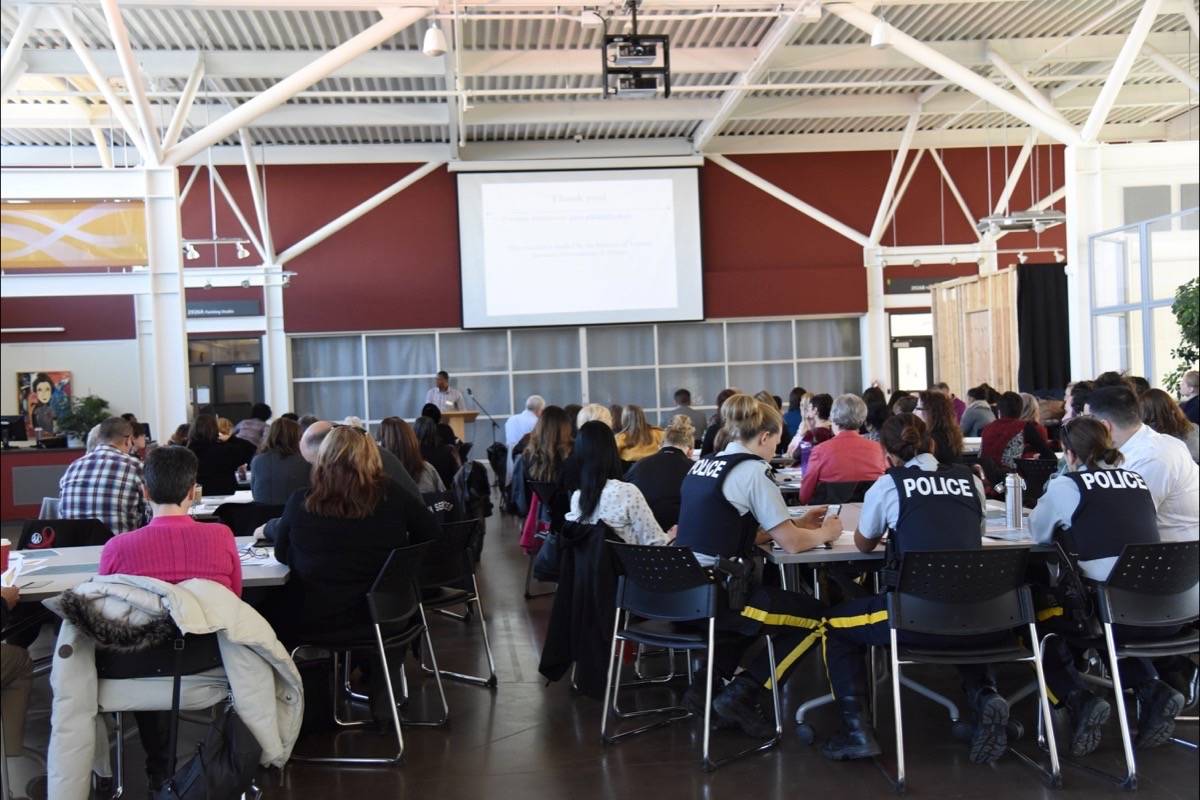Researchers presented findings on domestic violence in Central Alberta among immigrant communities at an event at Red Deer College Nov. 29th.
“Sometimes women get here and they want to stop the violence – there is another problem for her; maybe they will abuse her and she can’t report, she can’t do anything so this is a problem,” said one anonymous immigrant who participated in the study.
Seventy-five per cent of participants in the study reported that they or someone close to them was currently experiencing domestic violence.
The purpose of the research project was to understand the prevalence and causes of domestic violence in immigrant communities in Central Alberta.
“Many new immigrants endure and accept family violence because of culture, language and economic barriers. Their victimization is compounded by isolation, lack of information and an inability to access the existing supporting services,” said Halima Ali, executive director of the Central Alberta Immigrant Women’s Association (CAIWA) in a forum.
Researchers Dr. Jones Adjei, sociology instructor and Dr. Baiju Vareed, social work instructor from RDC highlighted key findings from the study.
One of the most revealing pieces of data from the questionnaire was that when asked directly if they had personal experience with domestic violence, 66% of women chose not to respond, said Adjei.
Of those participants who reported personally experiencing domestic abuse, 100% indicated they had experienced physical violence.
In the men’s focus group discussion, some revealed they felt it was acceptable to use physical violence to, “correct behaviour” of their wife and children.
The study showed that 57% of the immigrants participating were Canadian citizens and that 73% identified themselves as Christians.
Most of the immigrants indicated they had never sought help from support services.
Participants told researchers that their perspective on what was defined as domestic abuse had changed, after coming to Canada.
“We noted a theme among Filipino, Arab and African participants in the study, that within their communities there is an obligation to stay in an abusive marriage,” said Vareed. “One respondent shared a story about a husband who would control where his wife went and whom she was allowed to talk to,” he said.
Through the forums, participants alluded to factors affecting them staying with an abusive spouse including financial dependence, fear of losing their children and fear of being deported.
Researchers were surprised to note that there was no clear correlation between the individual’s level of education and their experience of abuse.
Seventy-one immigrants participated in the study.
They were mainly female and predominantly from Asian countries, though Hispanic, African, Caucasian and other countries were also represented.
Adjei acknowledged that the small sample size was a limitation of the study, but said despite this there were trends in the data that are valuable to inform further research and to provide direction for developing culturally competent strategies in Central Alberta.
The community forum invited input from stakeholders, elected leaders, domestic service providers, the RCMP and other community members.
Noteworthy attendants at the event included Maxine Huston – representative for MP Earl Dreeshan, Barb Miller – MLA Red Deer South, a representative for Red Deer North MLA Kim Schreiner, a representative for Lacombe MLA Ronald Orr, Robb Stuard. Mayor of Bowden; lead pastor Ben Elliott from the Deer Park Alliance Church and Dr. Jeff Pots, the pastor at Burman College.
The Alberta government ministry of Community and Social Services funded the research project, which was a collaboration between CAIWA and RDC.
The team is still compiling the final report summarizing their data.



